Local elections: Leicester mayor role under spotlight as vote nears
- Published
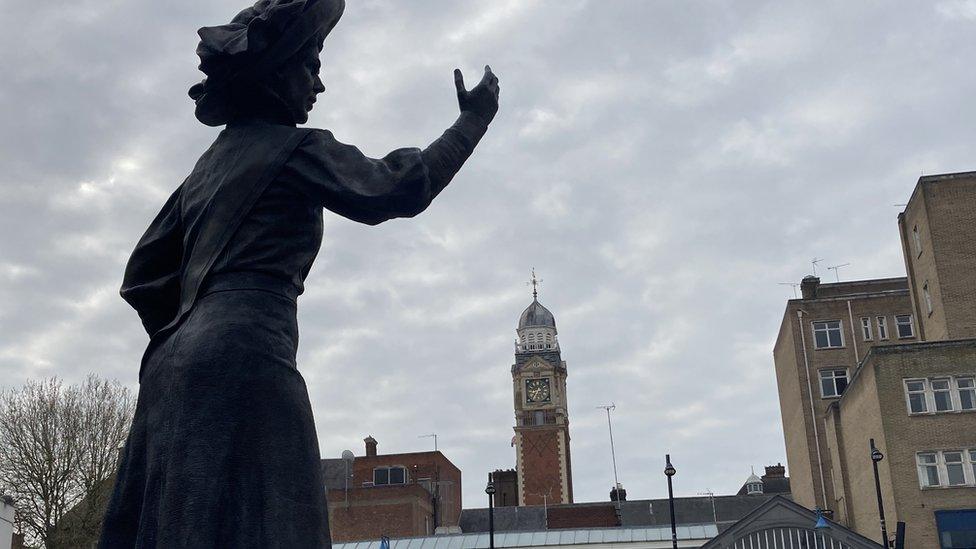
Leicester has had a directly-elected city mayor since 2011
Voters in Leicester will elect the city's mayor on 4 May, with potentially the very existence of the powerful political position at stake.
Six candidates are vying to win the mayoral election race, but three have committed to scrap the role altogether if elected.
A city-wide referendum on the future of the role has been promised by two more.
Only Labour's Sir Peter Soulsby - who is seeking a fourth term leading Leicester City Council - wants to continue with the status quo.

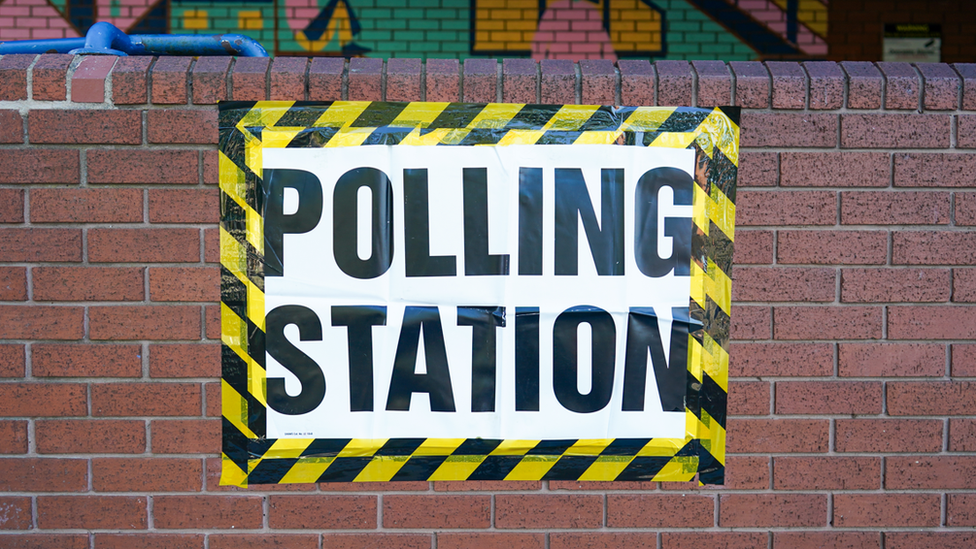
A number of Labour councillors in Leicester have defected to other parties ahead of the election
Why is the role being called into question?
In 2010, Leicester councillors agreed to adopt a "mayor and cabinet executive" model of governance after the May 2011 city council elections.
No referendum on the change was offered to voters at the time.
However some city councillors - including Labour members - have said the system concentrates too much power in one person's hands, with the mayor responsible for setting policy and making executive decisions or delegating them to chosen assistant mayors.
An elected mayor cannot be removed by a resolution of full council during their period of office either, hence the debate now.
This election offers voters the opportunity to possibly end the role if they elect a candidate who wants and agrees to abolish the job.

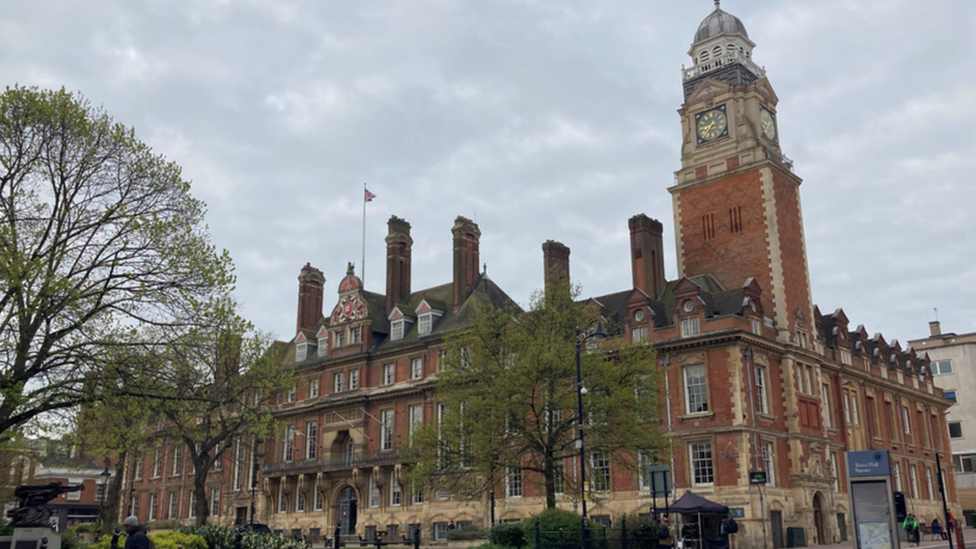
Councillors voted in March to keep the mayoral system
What has happened to Labour in Leicester?
Traditionally the Labour party in Leicester has selected council candidates locally, but in January there was a lot of upset in the authority's Labour group when the national party announced it was intervening to choose candidates.
The party told the BBC there were "inconsistencies" in how some city selections were carried out and concern about how the party was performing after the last by-election in the city, which the Conservatives won.
It left some local Labour members angry and in despair at the process imposed from above.
Labour selections were nearing completion as debate over the future of the elected mayor role in Leicester emerged.
Councillors deselected
The public got wind of the dissent and disagreement among Labour councillors on this when one, Jacky Nangreave, launched a petition to get rid of the role but then had the Labour whip withdrawn.
However, her concerns about the role gained traction and - with the help of opposition councillors - led to a special council meeting to debate and vote on the future of the role, on 9 March.
Councillors voted by 32 to 21 to keep the mayoral system but it remains to be seen if the voters follow their lead.
Mrs Nangreave was subsequently suspended from the party and a total of 19 Labour sitting councillors were then deselected as candidates, some heading to rival parties hoping to get re-elected and others standing as independents.

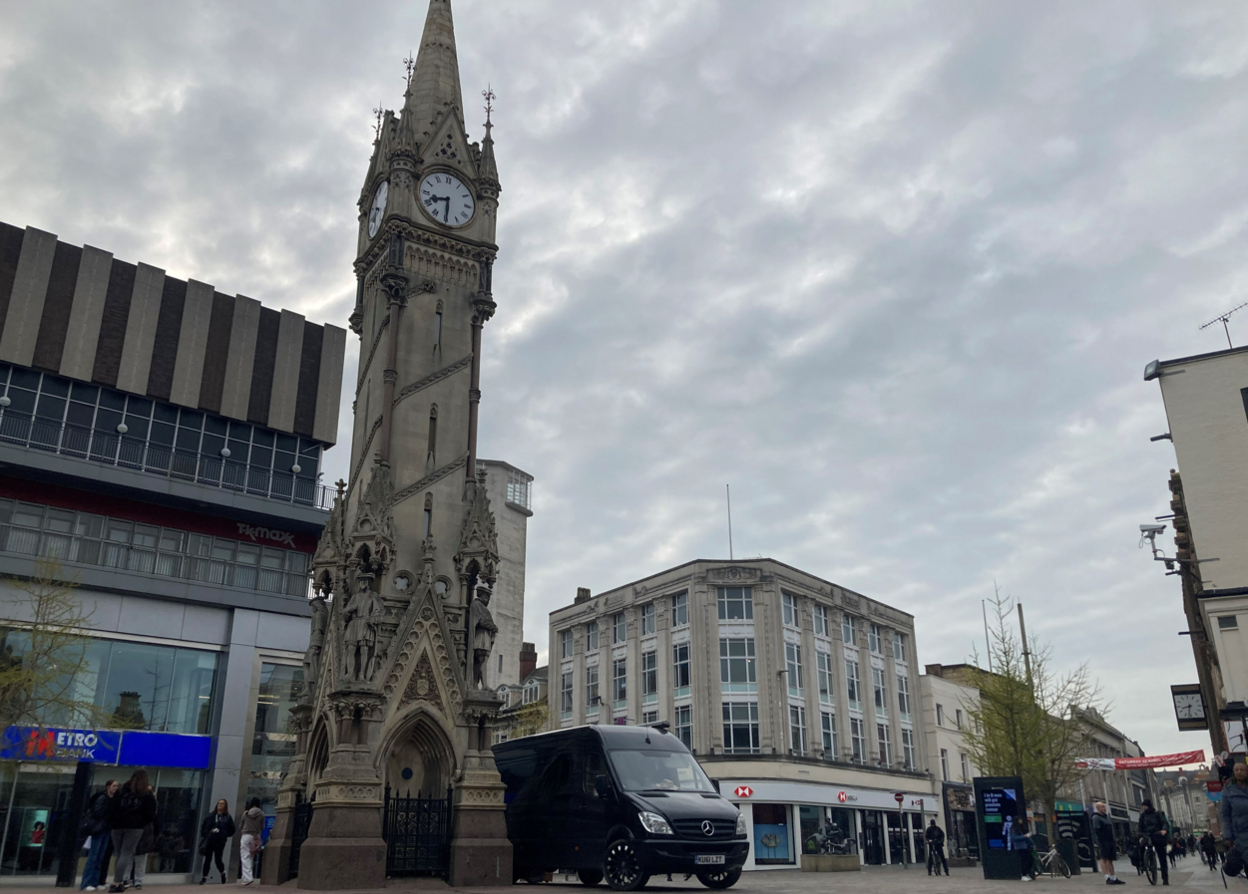
Voter ID will be required at polling stations for the first time on 4 May
Where do the candidates stand on the job?
Liberal Democrat Parmjit Singh Gill, who was the MP for Leicester South for just under a year between 2004 and 2005 before losing the seat to Sir Peter, has promised to hold a mayoral referendum should he triumph on 4 May.
He said referendums had been held in other cities that moved to the mayoral system but had been "continually denied" to the people of Leicester.
Green Party candidate Mags Lewis also wants a public referendum on the mayoral system.
She said the role "lacks accountability and transparency and puts too much power in the hands of one individual".
She has promised a referendum within a year of taking office. Ms Lewis is running for mayor for a second time, having come third with 7.9% of the vote in 2019.
Conservative Sanjay Modhwadia wants to see the role scrapped and said he would abolish the post within three months of the election, arguing the move would unlock the potential of the city.
Mr Modhwadia is the city's newest councillor having won the North Evington by-election from Labour in October.
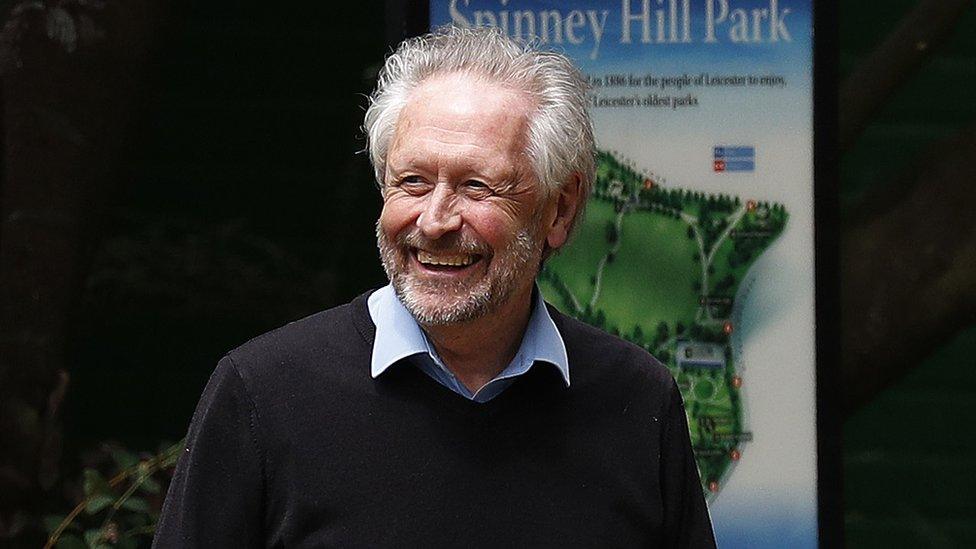
Sir Peter Soulsby said the city had benefitted from having a mayor
Independent candidate Rita Patel is campaigning to end the mayoral system, saying Leicester "needs a fresh start and one that puts people first".
She is a former assistant mayor to Sir Peter who quit his executive in 2021 because she was "unhappy" and wanted to engage in wider discussions and debate about the city's direction.
She left Labour in March after what she called an illegal suspension from the party for speaking against the mayoral role.
Trade Union and Socialist Coalition (TUSC) candidate, Steve Score, said he had opposed the role before it was brought in, and pledged to scrap it if he won this time. Mr Score also contested the mayoral election in 2019 for the Socialist Alternative group and came last with 2% of the vote.
Labour's Sir Peter Soulsby said Leicester had benefitted from having a mayor and, in the role, he had ended years of paralysis in the council where little was decided and agreed on.
He is hoping to repeat his previous electoral performances. In the 2011 and 2015 mayoral elections, Sir Peter secured 55% of the votes cast and increased that to 61% in 2019.
Sir Peter said he had helped the council manage the impact of substantial government cuts to its revenue funding since he took office while attracting inward investment.
He said he had also worked to restore Leicester's confidence in itself.



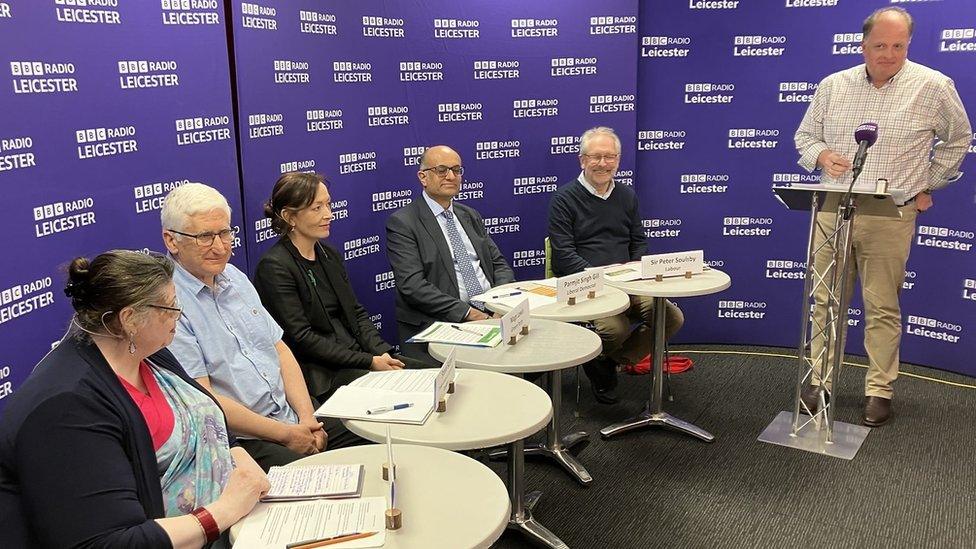
The mayoral candidates debating at BBC Radio Leicester
What have the candidates promised?
Parmjit Singh Gill said he would introduce free bus travel for the city's children, students and apprentices and review the council's landlord licensing scheme.
Mags Lewis said she would bring in 20mph speed limits in all residential areas and expand the city's district heating scheme and power it sustainably.
Sanjay Modhwadia said he would introduce a council tax lock to ensure it did not rise above inflation if he was elected as a Tory mayor. He also pledges to protect the city's parks and green spaces from development.
Watch back as BBC Radio Leicester hosts a debate between the mayoral candidates
Rita Patel also said she would protect green spaces and invest in neighbourhoods and communities.
Steve Score said he would, as mayor, end all cuts to services by using council funding reserves and provide free school meals for all children in the city.
Sir Peter Soulsby said he would help 20,000 families with £20m of council tax, rent and household costs support annually, as well as investing in CCTV to tackle crime and anti-social behaviour.

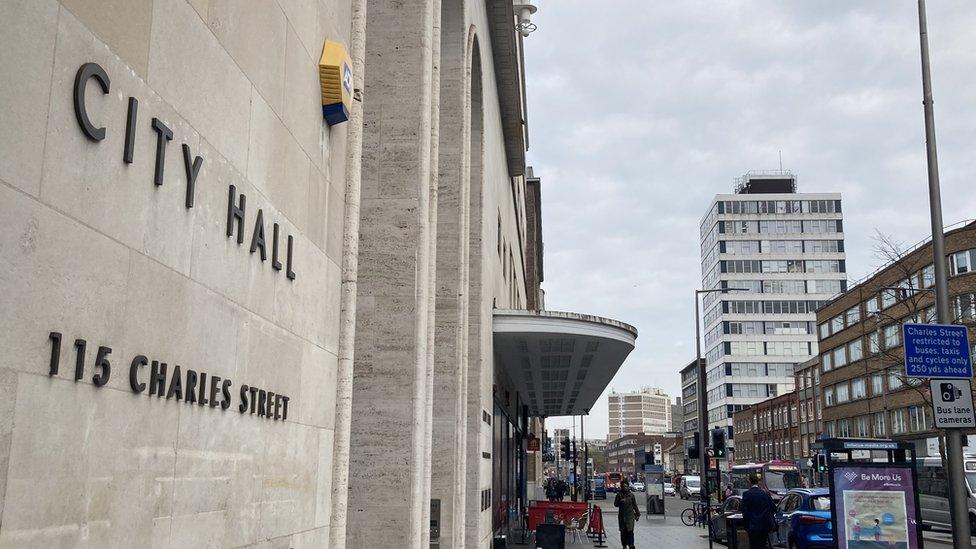
The results of the mayoral election are expected to be known on Friday 5 May
What about the council election?
Leicester voters not only get the chance to choose a mayor on 4 May, but also elect city councillors for the next four years.
Labour has dominated the city council since 2012, holding nearly all the wards and earning the city the nickname "Red Leicester".
However, the 2023 campaign has seen the party in turmoil with the deselection and defections of candidates, shifting the political balance of the council before a vote was cast.
Any council can expect one or two defections or departures after any four-year term, but Leicester's has seen a huge change.
Labour swept the board in 2019 - winning 53 out of the available 54 seats and taking the mayor's office again.
However, now the party has 36 city councillors.
Eleven ex-Labour councillors now sit as independents, the Conservatives have five councillors, including defectors from Labour, and the Green Party and Liberal Democrats both have a single councillor.
So Labour heads towards this election still in control of the council, but apparently less in command.

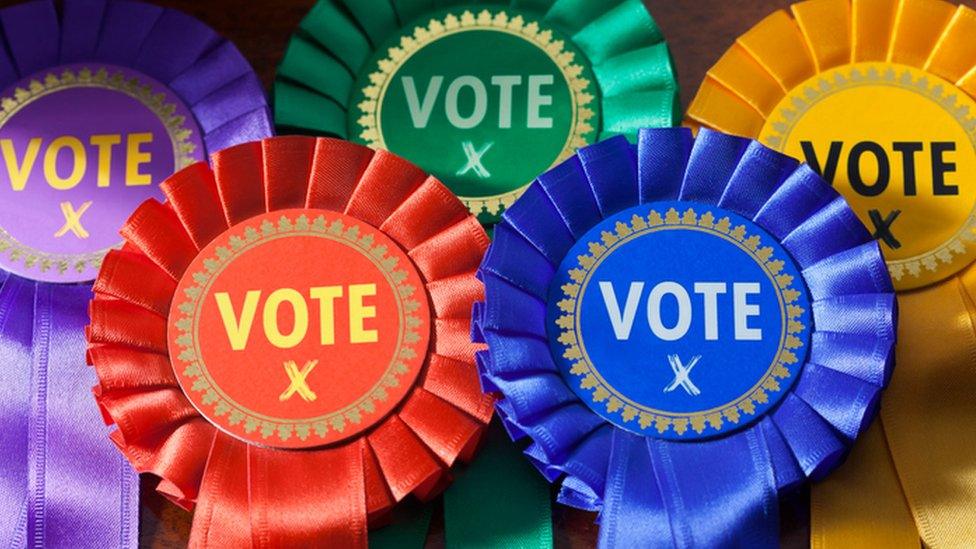
When and where will voting take place?
Leicester's polling stations will be open for people to cast their votes in the mayoral and city council elections from 07:00 to 22:00 BST on Thursday 4 May.
Voters are required to show photo identification - such as passports, driving licences and some bus passes - when they cast their ballots in polling stations.
The result of both elections are expected to be announced on Friday 5 May.

Follow BBC East Midlands on Facebook, external, on Twitter, external, or on Instagram, external. Send your story ideas to eastmidsnews@bbc.co.uk, external.
- Published22 March 2023
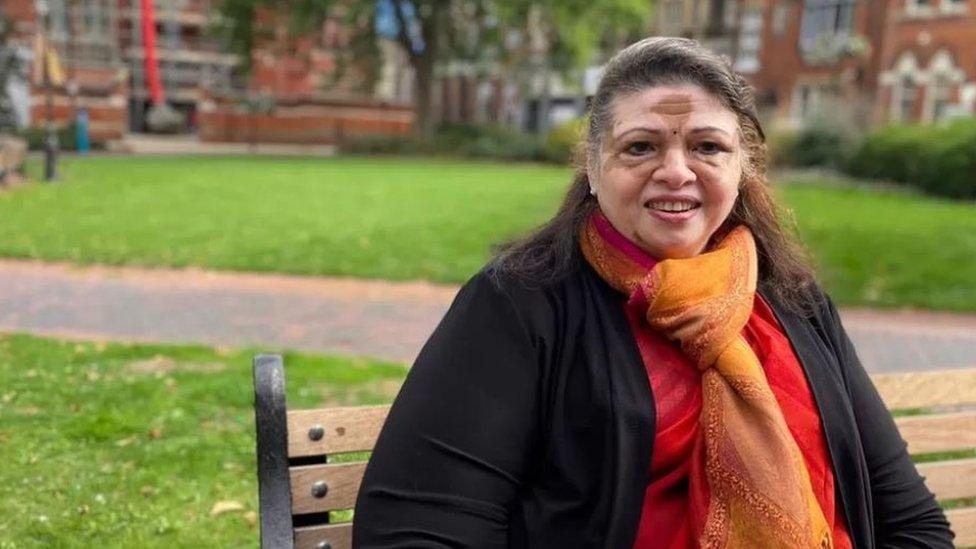
- Published10 March 2023
